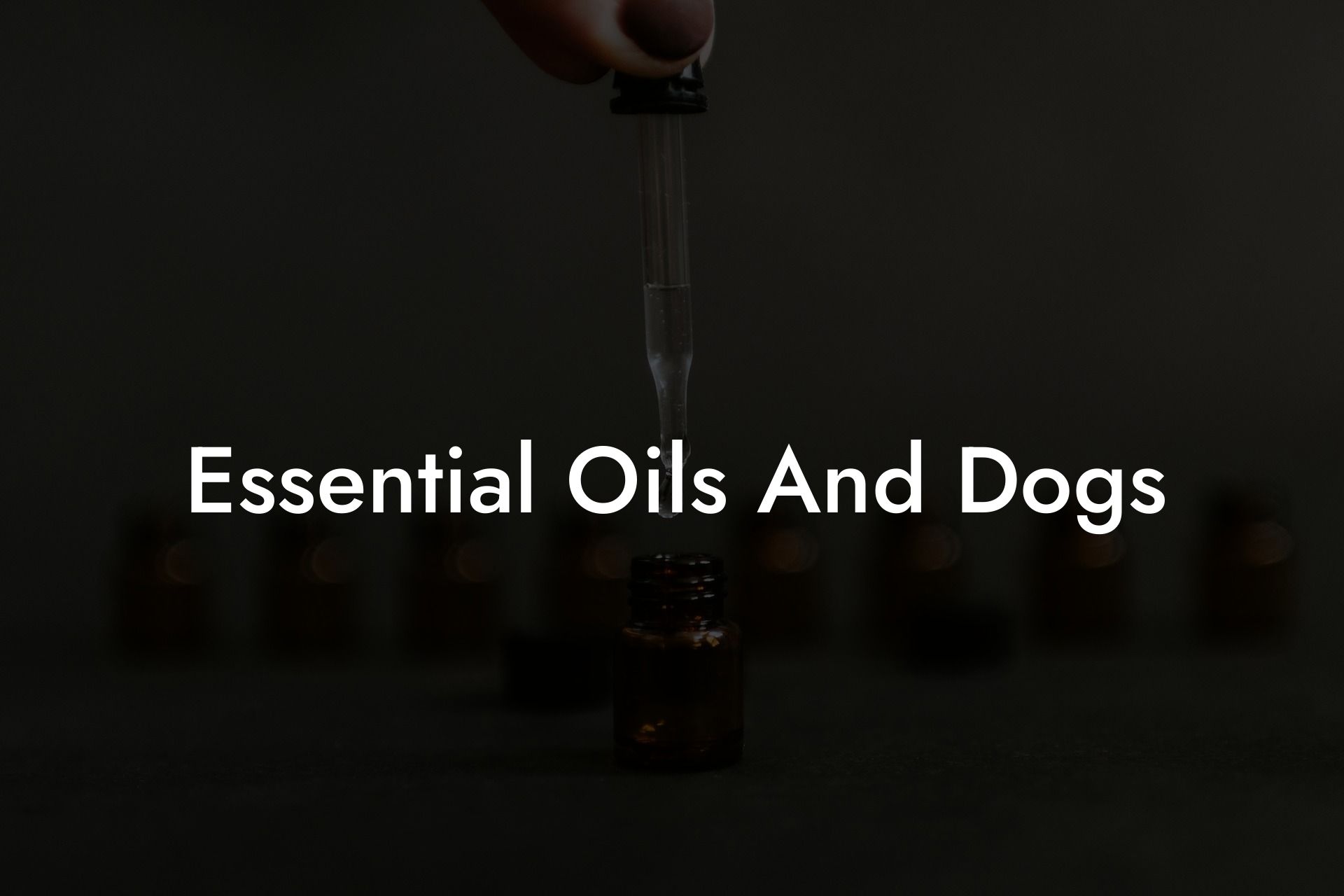Do you love your furry best friend and want to do everything possible to ensure their happiness and well-being? Essential oils have exploded in popularity for humans, but did you know they can also offer amazing benefits for your canine companion? The powerful properties of essential oils can enhance the lives of your dogs, but only when used safely and correctly. In this comprehensive guide, we’ll explore how you can introduce essential oils into your dog’s life, making them happier, healthier, and improving the bond between you and your beloved pet.
Table of Contents
Benefits of Essential Oils for Dogs
Essential oils can provide numerous benefits for your pets, such as:
- Reducing stress and anxiety
- Alleviating joint and muscle pain
- Boosting their immune system
- Improving skin conditions
- Helping fight off ticks and fleas
- Enhancing their overall well-being
Safe Essential Oils for Dogs
Not all essential oils are suitable for your dog, so it is crucial to use only those that are safe and pet-friendly. Here are a few examples of dog-approved oils:
- Lavender – easing anxiety and promoting relaxation
- Chamomile – calming and soothing irritated skin
- Peppermint – providing relief for joint pain and repelling insects
- Frankincense – supporting healthy immune function and skin health
- Carrot Seed – easing digestive issues and promoting liver health
Safety Precautions when Using Essential Oils for Dogs
While essential oils hold great potential for improving your dog’s quality of life, improper usage can lead to complications. Keep these safety tips in mind:
- Always dilute essential oils before use. Dogs have a more sensitive sense of smell than humans, so use only a few drops of oil mixed with a carrier oil (such as coconut or olive oil).
- Never apply essential oils directly to your dog’s skin, as this can cause irritation. Instead, use a diffuser or a diluted spray for safe application.
- Introduce essential oils slowly and gradually. Give your dog time to adjust and monitor their reaction closely before increasing the potency or frequency of use.
- Consult with your veterinarian before using essential oils, especially if your dog has any pre-existing medical conditions or is currently on medication.
- Be cautious with essential oils around pregnant or nursing dogs, as well as young puppies.
- Never force your dog to inhale or ingest essential oils if they show signs of discomfort or distress.
- Avoid using essential oils that are known to be toxic to dogs, such as tea tree, cinnamon, or clove oil.
Essential Oils And Dogs Example:
Meet Milo, a lovable Golden Retriever who struggles with anxiety during thunderstorms. His owner, Susan, has tried everything from thunder vests to calming treats – all to no avail. After researching alternative solutions, Susan decided to introduce lavender essential oil to Milo in a safe, controlled manner.
Through diffusion and light massage using the diluted oil, Susan noticed a significant improvement in Milo’s anxiety. The calming scent of lavender helped soothe Milo’s nerves, allowing him to remain relaxed and comfortable during storms.
We hope that this comprehensive guide on essential oils and dogs has given you the confidence to incorporate these powerful tools into your furry friend’s life. By understanding the benefits, knowing which oils are safe, and following the safety precautions outlined above, you can greatly enhance your dog’s health and wellbeing. If you found this guide helpful, please share it with your fellow dog lovers! For more tips and insights on essential oils, aromacology, and overall well-being, be sure to explore the blog section on Oshu Oils. Don’t forget to check out our range of high-quality, expertly crafted essential oils to find the perfect fit for your canine companion. Remember, your dog’s happiness and health are in your hands, and essential oils can be an invaluable tool in supporting their overall well-being.





















